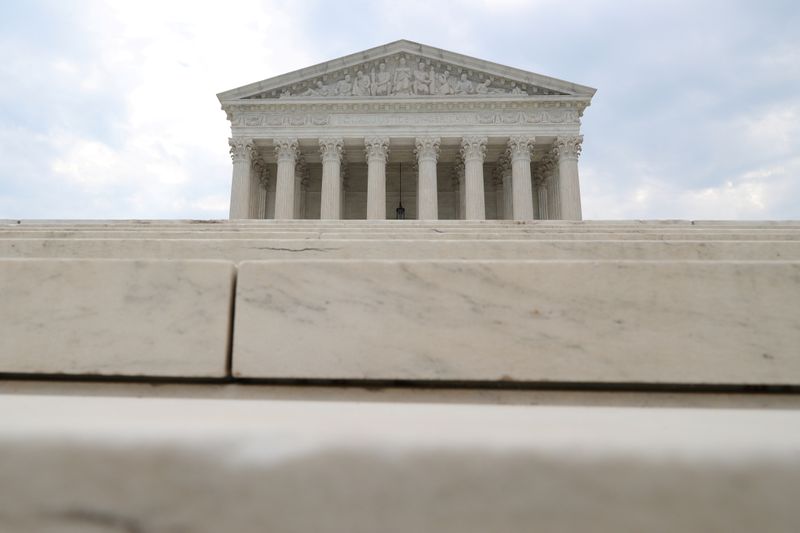WASHINGTON (Reuters) – The U.S. Supreme Court on Tuesday is set to hear arguments in a bid by Republican-governed states backed by President Donald Trump’s administration to strike down the Obamacare healthcare law, even as Joe Biden prepares to replace Trump in January.
Key priorities set by the Democratic president-elect included expanding healthcare access and buttressing Obamacare, the 2010 law formally called the Affordable Care Act that Republicans for years have sought to invalidate. The law was the signature domestic policy achievement of former President Barack Obama, under whom Biden served as vice president.
Although the court now has a 6-3 conservative majority bolstered by the Senate confirmation last month of Trump’s third appointee, Amy Coney Barrett, most legal experts think it would stop short of a seismic ruling striking down the law. The Supreme Court in 2012 and 2015 fended off previous Republican challenges to Obamacare.
Biden and other Democrats have criticized Republican efforts to strike down the law in the midst of a deadly coronavirus pandemic.
If Obamacare were to be struck down, up to 20 million Americans could lose their medical insurance and insurers could once again refuse to cover people with pre-existing medical conditions. Obamacare expanded public healthcare programs and created marketplaces for private insurance.
“Abolishing the Affordable Care Act would be deeply damaging to the American health care system and public health,” Georges Benjamin, executive director of the nonprofit American Public Health Association, said in a statement.
The justices will hear an expanded 80-minute oral argument by teleconference due to the pandemic.
The impetus for the Supreme Court case was a 2018 ruling by a federal judge in Texas that Obamacare as currently structured in light of a key Republican-backed change made by Congress violates the U.S. Constitution and is invalid in its entirety.
The justices in March agreed to hear an appeal filed by a coalition of Democratic-led states and the Democratic-controlled House of Representatives defending Obamacare.
They asked the justices to overturn a ruling by the New Orleans-based 5th U.S. Circuit Court of Appeals that declared that the law’s “individual mandate” that required people to obtain health insurance ran afoul of the Constitution. Republican states led by Texas and backed by Trump’s administration have asked the justices to throw out the law.
If the individual mandate is struck down “then it necessarily follows that the rest of the ACA must also fall,” Trump administration’s lawyers argued in court papers.
The Supreme Court in 2012 upheld most Obamacare provisions including the individual mandate, which required people to obtain insurance or pay a financial penalty. The court defined this penalty as a tax and thus found the law permissible under the Constitution’s provision empowering Congress to levy taxes.
In 2017, Trump signed a Republican-backed law tax that eliminated the financial penalty under the individual mandate, which gave rise to the Republican lawsuit. The tax law meant the individual mandate could no longer be interpreted as a tax provision and was therefore unlawful, the Republican challengers argued.
Democrats made the Republican threat to Obamacare a central feature of their opposition to Barrett’s confirmation to replace the late liberal Justice Ruth Bader Ginsburg.
Barrett, when she was a law professor, previously indicated she backed the challengers in the two previous Obamacare cases that reached the Supreme Court.
In recent cases with conservative justices in the majority, the court has declined to strike down an entire statute just because one part was unlawful.
“Constitutional litigation is not a game of gotcha against Congress, where litigants can ride a discrete constitutional flaw in a statute to take down the whole, otherwise constitutional statute,” conservative Justice Brett Kavanaugh, another Trump appointee, wrote in a ruling earlier this year.
(Reporting by Lawrence Hurley; Editing by Will Dunham)




















